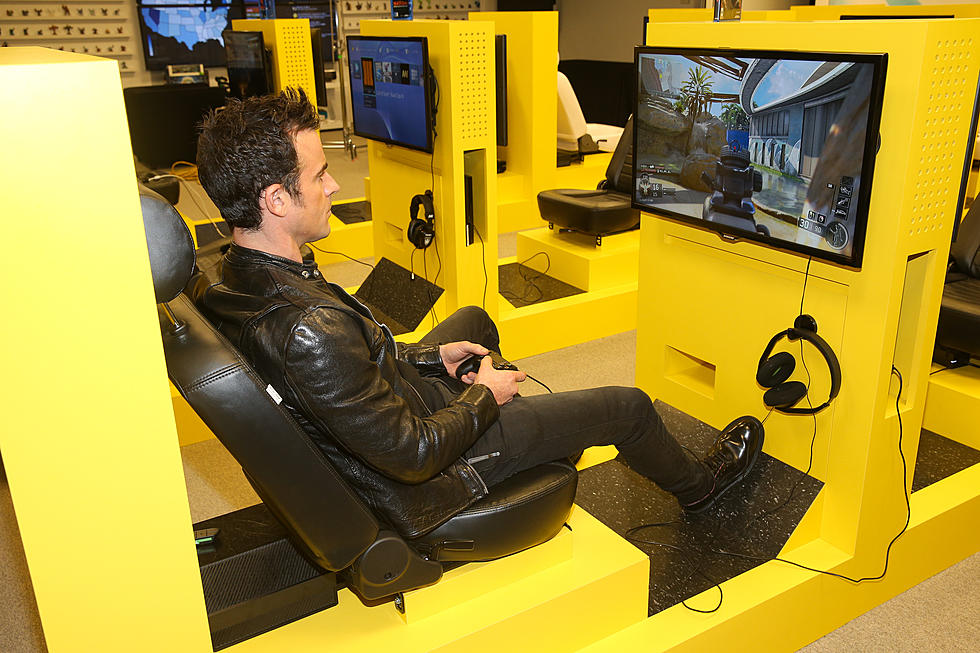
Geek Girl Report: The Great Video Game Debate – PC Gaming Vs. Console Gaming
I love a good debate. It's great to see two opposing sides so passionate about their issues, presenting their views and challenging the other side to rethink theirs. But there's one debate I always seem to find myself caught up in: PC gaming versus console gaming. It's kind of like putting a Cowboys fan and a Redskins fan in close proximity to each other, or a Democrat and a Republican together. You put a PC gamer in the same room as a console gamer, and they will start fighting with each other. Well, I'm ready to put this debate to bed once and for all. So, here is how PC gaming stacks up to console gaming.
Hardware
The biggest argument PC gamers like to use against consoles is this: PCs are technologically superior to consoles. And even though they've been around for so long, consoles still have a ways to go before they can go toe-to-toe with the kind of processing power you get from a PC. In fact, most high-end computer monitors offer better resolution than your standard HDTV. The newly-released PlayStation 4 or XBox One did attempt to briefly level the playing field, but even their specs are considered average by PC standards. Even they can't hold a candle to a souped-up, bleeding edge, top-of-the-line gaming machine.
Speaking of which, PCs are much easier to repair if they get busted, and far easier to upgrade. Usually it's just a matter of swapping out the old or broken component for a new one, and in most cases it's both cost-effective and will extend the life of your machine for years to come if you buy a good enough part. Consoles, on the other hand, are another matter entirely. If one part of the system doesn't work, the entire console must be repaired, and individual component upgrades are out of the question.
Games
In the vital games category, PCs completely swamp consoles with the sheer number of titles available on a PC. In addition to the big-name releases, PCs also have access to online only games, like browser games and E-mail games, as well as downloadable indie titles and even some older games, with a little work. With consoles, you only have access to that system's library, plus whatever they have on their respective online service and, if you're lucky, backwards comparability. There is no playing a PS3 game on the XBox 360. And that's another nice thing about PCs: While consoles like to fight over which games will be released exclusive on their system only, PC gamers can basically play any game they want. (except for Nintendo titles, who still regrettably insist on only releasing their games for their own systems.)
Generally speaking, you can play any genre of game on either system. But PCs tend to handle real-time strategies like Command and Conquer or Civilization, first-person shooters like Call of Duty and Borderlands, and massively multiplayer online role-playing games like World of Warcraft and Diablo tend to run better on PCs. Consoles, on the other hand, are more geared towards fighting games like Street Fighter or Super Smash Brothers or games you can pick up and play when you have your friends over, such as Castle Crashers or Mario Kart.
Ease of Use
When it comes to pick up and play, consoles are going to be your best bet. With most consoles, you can just slip the disc in and start playing right away. (unless there's an update available and you system won't let you play the game until you install the update...) PCs, on the other hand, require a little more initial set-up. Installing a new game, which is sometimes a gamble in and of itself, can take quite a while, sometimes even several hours before you can actually start playing. And no matter how up-to-date and cutting edge your system may be now, you will eventually run into some technical complications that interfere with gaming, like an out-of-date device driver or a component that's simply not compatible anymore. Console are definitely more user-friendly, especially for those who don't want to deal with the hassle of setting up a PC.
Cost
At first glance, PC gaming requires the bigger investment. Whether you buy one straight off the shelf or opt to build your own, you're still going to be looking at an initial price tag of over $800 for just a low-end system. Consoles, by comparison, are a much cheaper option, with most of them coming in at around the $400-$500 mark, or even lower than that. However, these costs are just for the core system itself.
This doesn't include all the require peripherals, like extra controllers and hard drives for consoles or keyboards and a mouse for PCs. And as far as consoles go, this is where you may end up sinking most of your money. While buying a new console usually requires you to buy a whole new set of controllers and components, PC accessories can work with most any computer and it's not necessary to buy new ones if you upgrade your machine, unless you want to. And of course, the most important part: the games themselves. PC games generally tend to be cheaper than console games, especially when you take into account services like Steam, who will often offer bundle packs or greatly-reduced sale prices during their famous Steam sales.
Final Thoughts
To sum it all up, console games are easier to pick up and play, and are preferred if you're a more hassle-free gamer who enjoys playing with friends on your couch. PC games, on the other hand, are more technically impressive with a greater variety of games and superior performance, if you're willing to put the time into it. The truth is both sides have their own strengths and weaknesses, and which one is "better" really depends on what you want out of gaming: a quick escape, or a serious hobby.
More From News/Talk 95.1 & 790 KFYO



![Chad’s Morning Brief: Stop Blaming Guns and Video Games for Mass Shootings [WATCH]](http://townsquare.media/site/192/files/2018/05/GettyImages-959870632.jpg?w=980&q=75)
![‘Video Games Live’ Is Way More Than Just an Orchestra Playing Video Game Music [VIDEO]](http://townsquare.media/site/190/files/2018/05/video-games-live.jpg?w=980&q=75)
![Chad’s Morning Brief: Trump Targets Violent Video Games [WATCH]](http://townsquare.media/site/192/files/2017/09/GettyImages-846563956.jpg?w=980&q=75)



